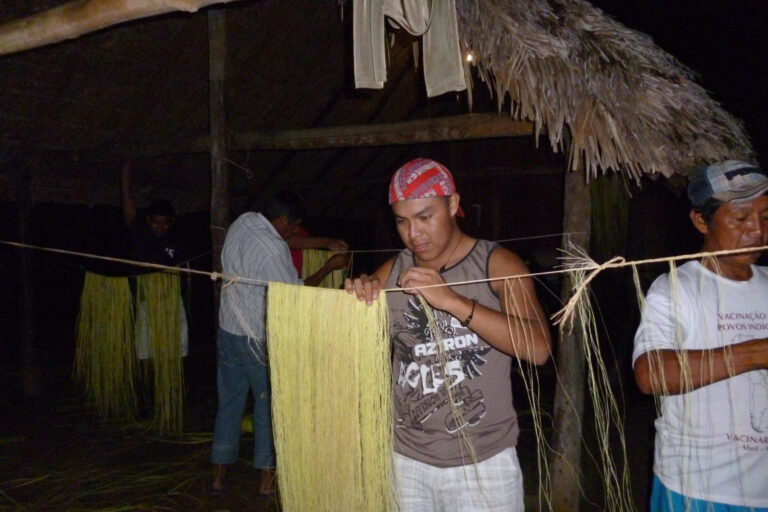- cross-posted to:
- earth
- cross-posted to:
- earth
- Jose Antônio Parava Ramos is a young leader of the Chiquitano people from the Portal do Encantado Indigenous land, in Mato Grosso state, west-central Brazil, bordering Bolívia.
- The Chiquitano people are an Indigenous group divided by borders, and their largest population currently lives in the neighboring Andean country.
- In Brazil, Parava’s land is the Chiquitano territory closest to completing its demarcation process; the people have waited more than a decade for this, and Portal do Encantado is just one of the many territories in the country in this situation.
- In a Mongabay interview, the Indigenous leader, who is also a health worker, sheds light on the pressures of deforestation and land conflicts on his territory and highlights the importance of demarcation to preserve his people’s identity.
“Hope is the last to die. We are apprehensive about what happened, but we will fight.” These are the words of Indigenous leader Jose Antônio Parava Ramos, a member of the Chiquitano people whose territory sits on the border of Bolivia and Brazil. He was sharing his perspective on a revived proposal to restrict the legal recognition of Indigenous territories in Brazil.
Parava, 37, from Mata Virgem village (in the Chiquitano language, Nochopro Matupama) on the Indigenous land of Portal do Encantado, spoke to Mongabay in late 2023 via video call.
In a significant setback for Indigenous land rights, his country’s original peoples witnessed what they consider the most extensive attack since the promulgation of the Brazilian Constitution more than 35 years ago: On Dec. 14, the National Congress overturned President Luiz Inácio Lula da Silva’s previous veto, which had struck down the core of a bill that stated Indigenous peoples could claim rights to lands only if they had occupied them on the Constitution’s promulgation date: Oct. 5, 1988.
This move by lawmakers in Brazil’s National Congress challenges the Supreme Court’s prior decision declaring unconstitutional the controversial “time frame” proposition, known as marco temporal in Portuguese. Numerous Indigenous organizations denounce the thesis, asserting it overlooks centuries of forced displacement experienced by many Indigenous peoples in the country.


